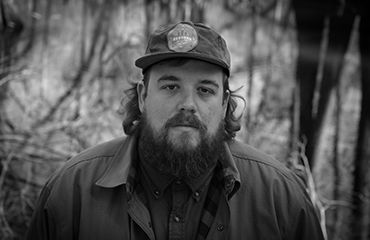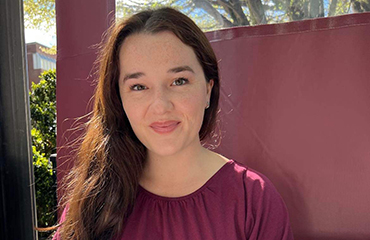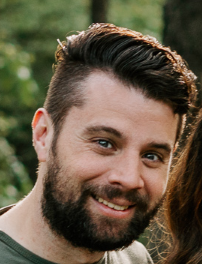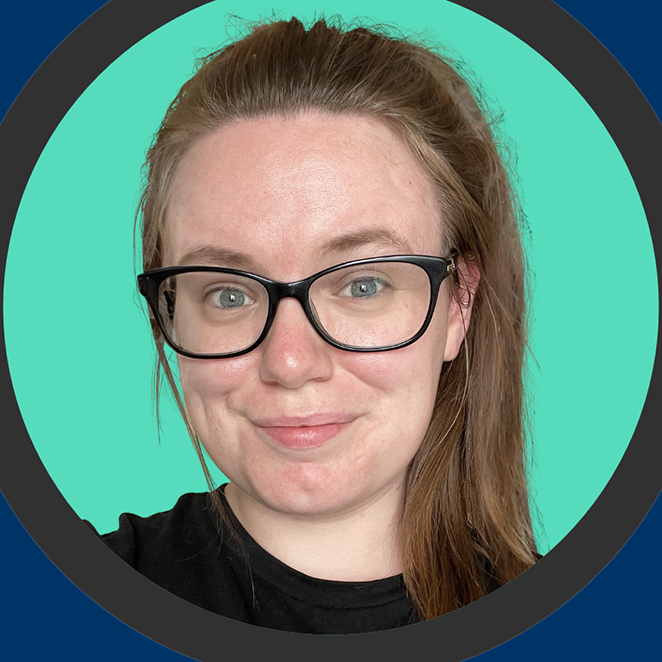If you’ve ever expressed an interest in majoring in English to your friends and family, you’ve probably turned a few heads and raised an eyebrow or two. English majors are far too familiar with parents, grandparents and classmates wondering, “What do you do with a BA in English?”
Yet contrary to that misconception, Lander University’s English alumni are consistently landing exciting careers in a wide variety of different industries.
Whether writing novels, starting their own businesses, working in a corporate setting or helping with the proper disposal of nuclear material (no, really), these Lander alumni will tell you their career success is attributed to the training they received in close reading, problem solving, and professional and creative writing. Their employers value the skillset they bring to their organizations, and their talents help them stand out among the competition.
“Almost everything we do, we do with language, so it’s important to pay attention to language and how it works,” said Dr. Sean Barnette, professor of English at Lander. “And that’s exactly what you’re studying as an English major. You’re learning to shape the world with language.”
Ready to learn more about Lander’s English degree program? Visit www.lander.edu/english.
Here’s a closer look at six Lander alumni who used their English degrees to launch successful careers:

Writing a Novel - Robert Maynor ’15
This may seem like an obvious career choice for English majors, but actually landing a book deal is no easy task. One recent Lander alum was up for the challenge, and in 2022, Robert Maynor’s debut novel, The Big Game Is Every Night, was selected for publication by Hub City Press. It’s now available wherever books are sold.
Short stories by Maynor have also appeared in several publications, including Blood Orange Review, BULL, The Carolina Quarterly and CRAFT, among other places. His work has been nominated for a Pushcart Prize, and he is the past recipient of the Larry Brown Short Story Award and the Coker Fellowship in Fiction from the South Carolina Academy of Authors.
If you’re looking to find your voice, refine your writing skills and tell your own story, Lander’s English program can help you. “My time at Lander helped me to understand myself and my community in new ways,” said Maynor, “and empowered me to write about the people and places and ideas that I am keenly familiar with and passionate about.”

Technical Writing, Editing and Revising - Paige Boeke ’18
Paige Boeke serves as a senior technical editor at the Savannah River Site, a nuclear facility located just next to the Savannah River that separates South Carolina and Georgia. Specifically, Boeke works for a nonproliferation program at the Savannah River Site. She’s tasked with writing or supporting proposals, plans, white papers and other technical and administrative communications that play an important role in the safe disposal of surplus nuclear material.
Publishers aren’t the only ones in need of strong writers. English majors, like Boeke, help organizations develop clear, consistent and concise messaging for customers and employees. “Some folks say I translate engineer into English,” Boeke said. “Every industry needs strong communicators and critical thinkers, and those are precisely the skills that an English degree develops.” She noted that this is especially true for STEM industries like hers.
Preparing for Natural Disasters - Ellison Smith ’16
English majors are also known for their active collaboration with others. In his role as a volunteer agency liaison for the South Carolina Emergency Management Division, Smith is no exception. He’s considered the official “go-between” for the agency and their partner organizations during times of crisis: national, state and local non-profit organizations, and faith-based recovery organizations in South Carolina. “I work with everyone from the American Red Cross and the Salvation Army to the Southern Baptist Recovery Team and the Lutheran Disaster Response Team,” he said.
Smith’s work is consequential, too. His coordination of emergency volunteer efforts provides an immediate response when South Carolina’s residents are impacted by any type of disaster. “An English degree allows you to be that Swiss-Army communicator, bouncing from cut-and-dry data points to helping an effected family find calm and peace and get help,” he said. “I truly would not be as confident in my abilities within my job if I didn’t have the experience I gained from my English degree.”
Working for a Multinational Corporation - Katherine McLane ’15
Katherine McLane said her revision skills are what helped her land her first job at FUJIFILM Manufacturing USA, “by properly revising and editing a mock email during an interview.” Her employers recognized her sharp eye for revision, along with her impressive resume and her practiced interviewing skills. From there, she was offered an administrative position in which she worked primarily for the company’s president and Human Resources.
Identified as an effective communicator and a team member who could quickly adapt to a new role, McLane was handed off to FUJIFILM Holdings America Corporation, where she now works as a corporate compliance coordinator. She says her English degree made her a trustworthy, multi-faceted employee.
“In my corporate job, I keep the skills that I learned in my undergraduate English years sharp, but I have a specific purpose and audience for corporate communication that has consequences,” she said. “I get to build relationships every day. I am trusted with written communication that is seen by all levels within the organization.”

The skills acquired with an English degree are in high demand in a host of different fields, and gaming is not immune to that need. Pace has been working in the gaming industry for “about a decade,” and he has previously served as a quality assurance manager and designer. He’s currently a producer for Lost Boys Interactive. Pace’s English degree comes in handy, both in game development and in team leadership.
“Producers have to be excellent communicators, especially with different audiences,” Pace said. “Producers are often dealing with problems, which means managing emotional communication while trying to build consensus among different teams and opinions. There are some producers that focus on narrative as well, so while there are some ‘mechanical’ English skills needed to be a producer, there are also creative skills if you find yourself supporting a game that has a complex story, character and worlds.”

Starting Your Own Business - Mel Lee-Smith ’15
Mel Lee-Smith is a self-employed business owner and freelance writer, who has years of experience developing content for businesses, websites and publications. She recently launched the Joyful Creators Club, which she describes as “a supportive space for creatives who want to try a variety of artforms instead of specializing in just one…” In her free time, she volunteers with The Echo Project, a non-profit that aims to build a museum and diversity center in Laurens, S.C.
“I use the practical skills I learned in my copyediting, linguistics, technical writing and advanced grammar classes every day at work,” said Lee-Smith. “My education also helped me develop the soft skills needed to effectively manage a team.” She always enjoys the chance to visit Lander’s Department of English and Foreign Languages when she’s home.
“Without Lander, many of my favorite achievements wouldn’t have been possible: studying abroad, meeting my husband, getting a WFH (work-from-home) job doing what I love most, moving to Ireland and ultimately living a life rich in experience and wonder beyond even my wildest dreams.”
Launch Your Career - Apply Now!
If you’re thinking about majoring in English, the question you should ask isn’t “what can you do” with an English degree, but rather, “what can’t you do?” Your future career might look like one of the ones mentioned above, or you might even find yourself writing articles like the one you’re reading right now (the author also earned his English degree from Lander).
Dr. Rachel Scoggins, assistant professor of English at Lander, reminds her students that English majors are only becoming more essential in a technology-based society and rapidly-changing economic landscape. “A lot of what we do is online, and that requires reading, it requires writing, it requires communication skills,” she said. “You can get pretty much any job with an English degree because it tells an employer you can read critically, you can look at multiple angles, and you can write. Those skills are such an important part of today’s world.”
Learn more about Lander University’s English degree program by visiting www.lander.edu/english.